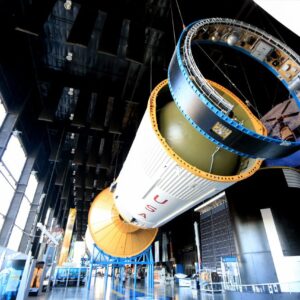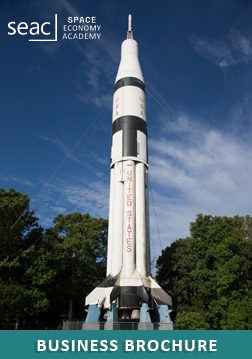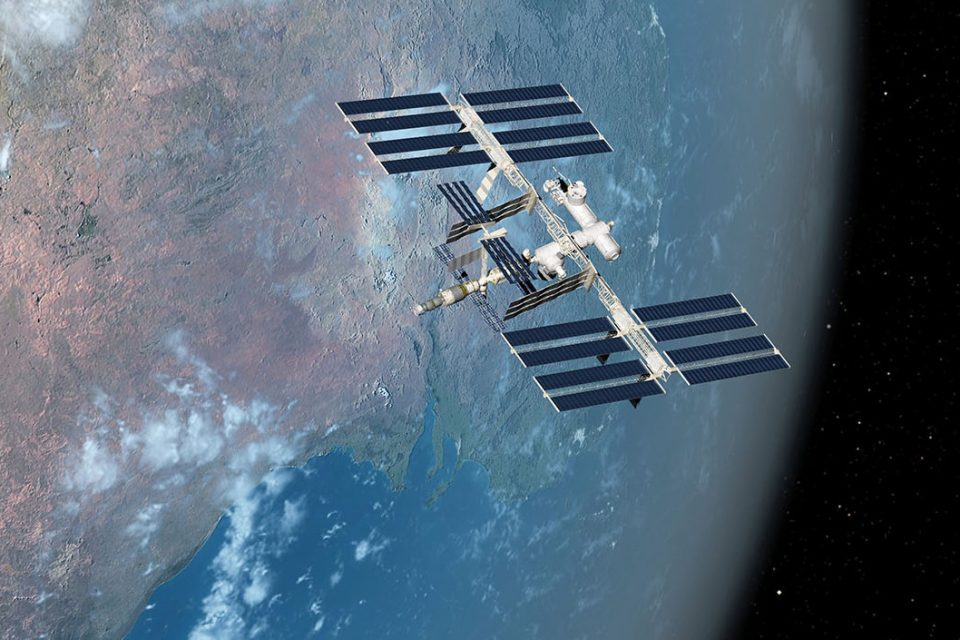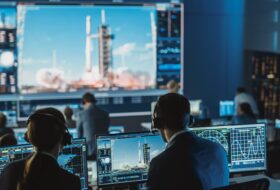Author: Andrea Iapichello
What does the AI mean?
Artificial Intelligence (AI) is the ability of a machine to learn, complete tasks and improve during the process. The purpose of AI is to mimics human’s decision-making ability in order to perform tasks. Three types [1] of AI can be distinguished:
3 different types
- Weak or Narrow AI, that is able to solve only one specific problem; Android or Apple personal assistant falls in this category.
- Strong or General AI, that is able to perform multiple tasks; theoretically on par of the mind of an human being.)
- Super AI, that can outperform human mind, performing tasks better than humans. At the moment, Weak AI is the most common and General AI is still in its infancy, while Super AI is practically an utopy.
In the recent years, AI has been exploited in many fields, in particular AI in Space Operations .
How can AI improves Space Operations?
At the moment, AI is used for analysing the huge amount of data coming from space missions and which are catalogued through machine-learning processes. Another area in which AI has been used is satellite operations, in particular to support missions with a large number of satellites. [2]
However, AI for space application is still at its beginnings, and a proof of this is that ECSS-E-HB-40-02A – Machine Learning Qualification for Space Applications Handbook – is only a draft (@ November 1st 2022).
But, how can AI improves spacecraft operations?
In 2022, 179 satellites have been launched, 147 of which are placed in Low Earth Orbit (LEO).
[3] The rising of private companies and reusable rockets made getting into orbit cheaper. The projections forecast that in the next decade the number of satellite around the Earth will be hundred of thousands.
Trying to manage such an high number of satellite from the Mission Control Centers (MCCs) would surely require a high number of controllers but also adequate infrastructures (buildings, screens, antennas etc.).
These needs then translates in huge amount of money to manage all the satellites in orbit. [4]
In this scenario, AI would rush to the aid of Space Agencies. AI could make satellite constellation management autonomous, for example for relative positioning, communication or end-of-life operations.
Another important feature would be the lack of programming maneuvers, for example the ones for avoiding space debris. AI would manage to make little adjustments of the orbit in order to avoid any potential risks. In the other hand, planning manoeuvres can require up to some days, also because a simulator is needed. Through the machine learning
AI could eliminate the need of planning manoeuvres, making the whole process less complex
This would translate in the minimization of the manpower and ground infrastructures for the Space Agencies, resulting in the cut of expenses that of course could be used as budget for the development of other missions.
Another features of the AI is that it can be used for scheduling and mission planning. For example, APSI (Advanced Planning & Scheduling Initiative) is a project that develop AI based tools for planning, scheduling and optimisation processes.[5]
The goal of the tool is to link the AI with the space mission planning and operations. In the future, tools like APSI could use AI for reducing the time of the Early Operations Phase (EOP) or lightening procedures.
AI surely is the future of space operations and exploration of universe. It could bring a lot of benefits to engineering, management, scientific etc. However, even if AI will be able to manage most of the aspects of the missions, humans should always supervise all the events, at least as long as strong AI will not be ready
Bibliography
1- Narrow AI vs. General AI vs. Super AI (spiceworks.com)
2- ESA – Artificial intelligence in space





